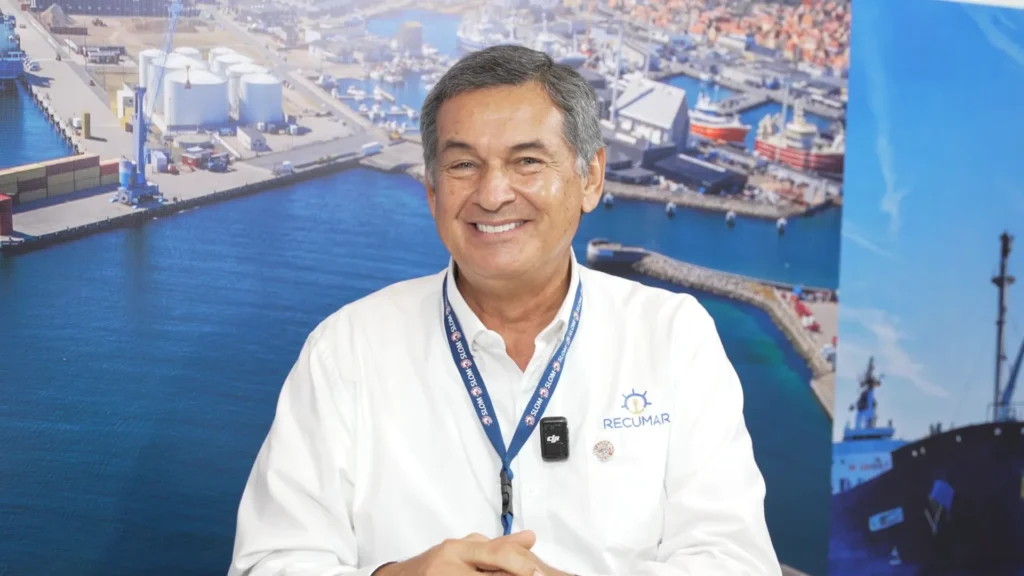During the SLOM 2025 conference in Panama, Captain Ricardo Izquierdo, former president of the Latin American Society of Marine Oil Terminal Operators (SLOM) and CEO at Recumar S.A.S., shared a technical view on the main challenges facing today's maritime terminals in Latin America. His experience of more than 30 years in port operations and consultancy in ship-terminal interfaces allows him to clearly identify the critical points of the sector.
Founded more than two decades ago, SLOM has been a cooperative network of port operators dedicated to knowledge sharing, incident analysis and the application of new technologies. Izquierdo explained that this collaborative approach has made it possible to professionalize oil marine terminal operations and reduce risks over time.
One of the main points addressed was the mismatch between the growth of the shipping industry and the physical capacities of ports. The global trend towards larger vessels of greater
In addition, Izquierdo warned that 35% of the world's oil tanker fleet is already over 15 years old, a factor that increases structural failure rates and requires more rigorous inspection protocols. "We are servicing increasingly larger and older vessels in infrastructures that were not designed for those dimensions or operating conditions," he explained.
Izquierdo also emphasized the human factor, noting that crews face long hours, commercial pressure and limited rotation. This has triggered an increase in stress levels, accumulated fatigue and psychological effects.
Reports of the International Maritime Organization (IMO) and the United Nations reflect a worrying increase in cases of suicide among merchant seafarers. These factors not only affect the welfare of workers, but also translate into a greater likelihood of incidents during port operations.

The growing importance of cybersecurity contrasts with the reality of many terminals, which, lacking digital protocols integrated into their physical protection plans, present a significant vulnerability that threatens their operational continuity in the face of a possible cyberattack.
Izquierdo recommended conducting updated risk assessments with a comprehensive approach that considers both traditional and digital threats; this is the only way to implement effective preventive controls in an increasingly complex environment.
Faced with a reality in which Central and South American countries share similar challenges, regional technical cooperation becomes indispensable. For Izquierdo, the only effective strategy is to share information, standardize best practices and consolidate operational capacities.
SLOM has shown that integration between terminals in different countries has been very important in addressing structural problems in the sector. The experiences shared from Mexico to Chile represent a solid base to build solutions adapted to the Latin American reality.
Although Izquierdo did not advance specific information about the next edition of SLOM, he confirmed that the technical agenda will continue to prioritize the issues that today concern the operational community, such as critical infrastructure, risk management, digital transformation and strengthening of human talent; furthermore, in his closing message, he made it clear that port operations in the region will only be able to sustain optimal levels of safety and efficiency through the combination of three pillars: rigorous diagnosis, technological adaptation and technical cooperation among peers.
For more content about SLOM 2025, please visit our LinkedIn profile.
Source: Inspenet.